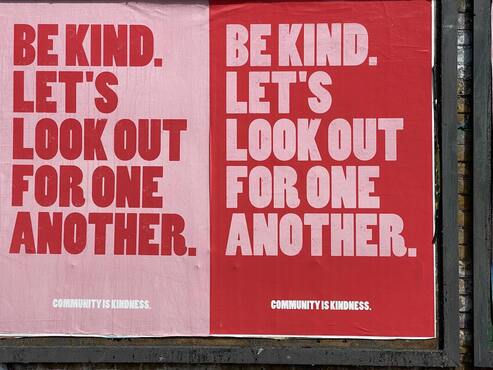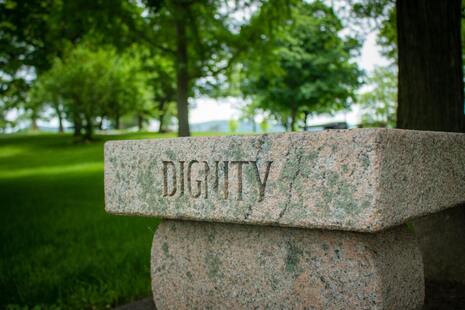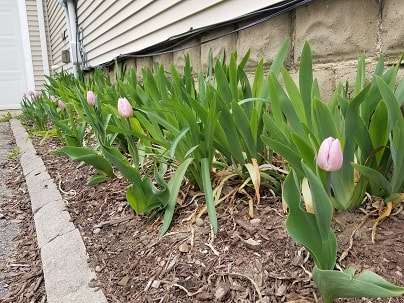|
By Nick Carrington EPLA Editor May is mental health awareness month and a great opportunity to remember the challenges that miscarriage causes. The physical effects are traumatic enough, but women face intense mental and emotional struggles as well. A recent study suggests that miscarriage potentially doubles the risk of suicide in teens. The researchers focused on teenagers in the juvenile justice and foster care systems, a group who traditionally doesn’t have a strong support system when tragedy strikes. The experience of those teens isn’t uncommon. While other mothers are blessed with support systems in various forms, like friends, family, and church and other civic groups, they may not experience the fruit of that community after a miscarriage. That lack of support occurs for multiple reasons. We still don’t talk about miscarriage enough. People are often uncomfortable hearing about a miscarriage and don’t know how to react. But also, we don’t always recognize that both mother and father have lost a child. In most cases, we should expect the parents will grieve as those who’ve lost a loved one. So loved ones should react accordingly. Many ways that we comfort the grieving are appropriate in this situation, like sending flowers, starting a meal train, writing cards, and providing gifts. As a community, we strive to ease burdens from the loss family so they can focus on grieving instead of dealing with endless other responsibilities. When women and families don’t have people to support them, they may spiral into despair. That’s why the EPLA focuses so much on building community around miscarriage. As we think through mental health, let's not forget that a strong community plays a role in the healing process. So be there for each other and know who will be there for you. When a miscarriage occurs, we not only grieve together, we work to help loved ones heal. Nick Carrington is an Editor for the EPLA and Associate Professor of Professional Writing at Cedarville University
2 Comments
By Emily Carrington EPLA Executive Director Seven years ago I started talking about my miscarriages. At the time, I was lauded as brave. I wasn’t noticed as brave for enduring the heartbreak of losing a child. I wasn’t noticed as brave for enduring the physical process of losing a child. I was called brave simply because I talked about my miscarriage. And they were right. No one talked about miscarriage. It was newsworthy when celebrities opened up to tell their own stories. It turns out there were a lot of people like me. Just ready to talk into the silence. The hushed culture inspired projects like “Don’t Talk About the Baby” and Grieve Out Loud. For a long time the conversation simply was “WHY ISN’T THIS A CONVERSATION?!” But now it is a conversation. It is at least a growing conversation. We must still work against long-standing cultural norms of silence, but we also must look forward. If we are going to talk, what are we going to say? At Hope Blooms we hope to help answer that question. We still want to raise awareness, and we still believe there is a LONG way to go on that front. But what are we going to say to those who are paying attention? In keeping with our mission, vision, and values at EPLA, I believe it is time to educate, amplify, support, dignify, and love. Educate: As miscarriage awareness grows, it is important we offer clear explanations and definitions so people can better understand the physical experience of miscarriage. While the word miscarriage is used broadly, there are many medical terms that explain embronic development, medical procedures, and female reproductive issues. As the conversation continues we must educate, educate, educate to protect against misinformation. Amplify: We must amplify the voices of people speaking: the families, the doctors, the nurses, the other care providers. By giving these voices volume we are honoring not only their lives, but the lives of the little ones they lost. Support - We must continue to increase support. This includes physical support, financial support, emotional support, and spiritual support. As we listen, we must hear what people need and seek to improve services. Dignify: We are not here to just ruffle feathers, change procedures, or yell about our sadness. We are not here to ask everyone else to yell; in fact - I wish we never had to yell at all. I wish we could grieve quietly with dignity. I wish our lost children were given dignity. As we continue to talk about miscarriage we must do so with an eye on dignity. The same dignity we give all birth and death, because it is just that: a birth and a death. Love: Perhaps this isn’t a different task, but the action that holds everything together. As the conversation continues we must continue to love. We must love each other and more specifically we must love human life. We are honored to use this blog space to do just these things, and we are glad you are here to join us. Emily Carrington is a freelance writer, wife, mother, and founder of the EPLA.
By Maria Servold EPLA Editor As the Early Pregnancy Loss Association has grown over the past few years, we have made an effort to develop and maintain collaborations with other groups. We’re proud to pursue our mission of serving women suffering early pregnancy loss, but we’re also proud to work with other groups to further our missions together. One such group is Metro Detroit Share, a regional branch of the national group Share, which provides support for pregnancy and infant loss. Since 2020, we have worked with Metro Detroit Share to include our early pregnancy loss kits in bags they provide to women suffering miscarriage all over the greater Metro Detroit area. Recently, we provided another 500 small loss kits to MDS.This brings our total to 1,500 kits distributed to MDS in less than three years. The group’s director, Angie Winton, came to Hillsdale with a truck and a trailer to pick up all the kits - for which we are so grateful! (And a special thanks to the Stockdale kids for all their help!) Maria Servold is an Editor at the EPLA, Assistant Director of the Herbert H. Dow II Program in American Journalism, and Lecturer in Journalism at Hillsdale College.
By Emily Carrington EPLA Executive Director My parents were in town visiting to celebrate my husband’s graduation from Baylor University. It was the beginning of a month of celebration: an honors dinner, graduation parties, and goodbye parties. Every few days we had another reason to gather and celebrate our five years in Waco. After church that Sunday, we were excited to take my parents to Dichotomy for a Mother’s Day brunch. The restaurant - a coffee shop by day and bar by night - had just opened and was an exciting addition to the pre-Magnolia Waco landscape. I ordered my mimosa and thought, Well, I guess this is something I can do now. Less than 10 days before, we said goodbye to our first baby. At a little over 11 weeks pregnant we heard the horrible words “I am sorry, there is no heartbeat.” Opting for a D&C procedure to complete the miscarrage, the whole thing seemed rather “contained” and life seemed to spiral on. My husband was graduating, he had a new job, we had bought a house, we were moving back to the Midwest; everything we had worked for for five years was coming to fruition. This was an exciting time of celebration. But on Mother’s Day the shadow of my loss was looming. I was sad, but I was also feeling better. My morning sickness had subsided, my hormones were leveling out, and my body was starting to move forward. I could drink and enjoy the mimosa, something I could not have done two weeks earlier because it was not only unwise, but impossible due to my early pregnancy food aversions. How long would I feel this way? I was at once confused, relieved, and burdened by grief. This year, May 1 is International Bereaved Mother’s Day and May 8 is Mother’s Day. Some might argue that all mothers deserve recognition on the “real” Mother’s Day and that bereaved mothers don’t need our own special day. Others might suggest that such a day is needed, otherwise we get lost in the shuffle and forgotten. These first two weeks of May hold that dichotomy of bereaved motherhood. Your motherhood is valid, your motherhood is real, you are a mother. But your baby is missing and your arms ache and it might feel as though your motherhood has been stripped away from you. Your legitimacy to motherhood is not ruined by your grief of its loss. That is the grief: you are a mother missing the very thing that fulfills that role. That first Mother’s Day, I sipped my mimosa slowly and held my motherhood closely. Emily Carrington is a freelance writer, wife, mother, and founder of the EPLA.
|
Archives
December 2023
Categories
All
|





 RSS Feed
RSS Feed